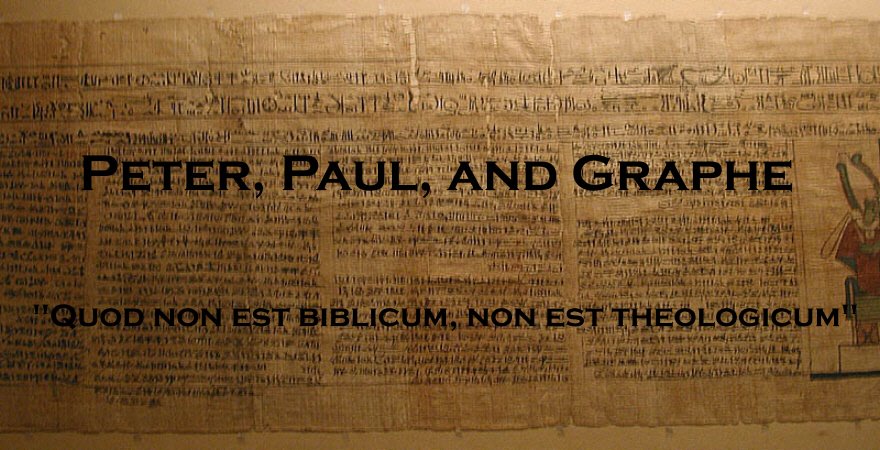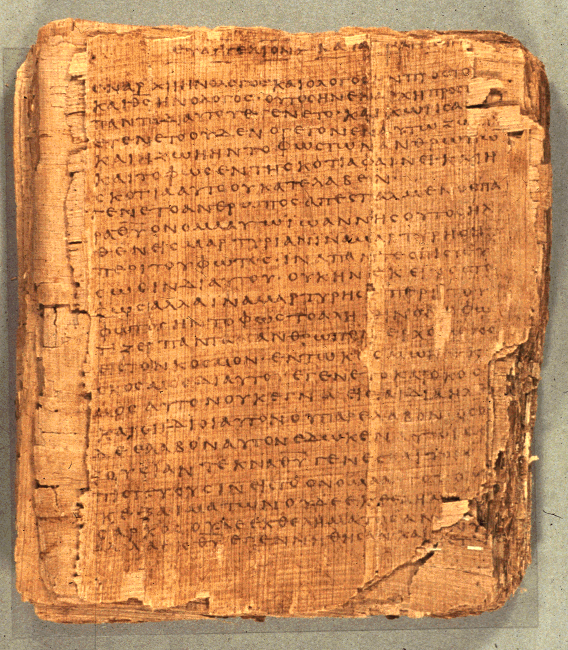 This conversation has the potential of becoming a hot topic. My hope is that as we think things through we may find some clarification on reconciliation and grow in grace because of what it means for us. This conversation has the potential of becoming a hot topic. My hope is that as we think things through we may find some clarification on reconciliation and grow in grace because of what it means for us.
The last post dealt mainly with alienation and its ramifications in the relationship of God and man. Unregenerate man and God are at enmity with one another. In this post I will address reconciliation and its theological ramifications.
The looming question is "Who is reconciled?" Is it God? Man? Both? At the risk of leading readers into ambiguity, I will state that I intend to argue for the "both" position. In Col 1:22, God is the subject of the verb "reconciled" ("But now he has reconciled you"). The Colossians were reconciled to the one who they were previously at enmity with. (Note: The verse continues stating "by Christ’s physical body" indicating the means by which reconciliation is accomplished.) God has reconciled believers to himself.
While it seems I have proven the "Man" argument, I would like to interject some thoughts related to my previous post. 1) Is not God also at enmity with Man? 2) Does not this enmity also require some type of appeasement? Or must it be called something different? Man is reconciled to God, and God is now "ok" with Man (but not reconciled).
Murray provides some very cogent thoughts:
The liability to which the reconciliation is directed is the unmistakable index to that which constitutes the reconciliation both as action and result. As action it is the removal of the alienation characterized as exclusion from the favour of God and from the privileges which his favour insures and bestows. As result it means that those who were at one time far off, separated from God and his fellowship, are brought nigh to God and are at peace with him (cf. Eph 2:13, 14, 17; Col 1:20). Liability, action, and result all converge to establish the basic concept of alienation removed and peace constituted.
--"The Reconciliation." WTJ 29 (Fall 1966): p. 5.
I feel Berkhof brings the "both" argument full circle:
...the atonement was intended to propitiate God and to reconcile Him to the sinner... But it should be borne in mind that this is not equivalent to saying that the sinner is atoned, which would mean that God made amends or reparation, that He rendered satisfaction to the sinner. And even when we speak of the sinner as being reconciled, this must be understood as something that is secondary. The reconciled God justifies the sinner who accepts the reconciliation, and so operates in his heart by the Holy Spirit, that the sinner also lays aside his wicked alienation from God, and this enters into the fruits of the perfect atonement of Christ (italics added).
--Systematic Theology, p. 373
So that my post is not unreadibly long (yes, I made that word up), I will reserve some thoughts for the next post.
|





















Comments on "Alienation, Reconciliation, and Perseverence in Colossians 1:21-23, Part 3"
-
 CWatson said ... (Wednesday, September 13, 2006 12:35:00 PM) :
CWatson said ... (Wednesday, September 13, 2006 12:35:00 PM) :
-
 petros said ... (Wednesday, September 13, 2006 1:29:00 PM) :
petros said ... (Wednesday, September 13, 2006 1:29:00 PM) :
-
 CWatson said ... (Thursday, September 14, 2006 7:09:00 AM) :
CWatson said ... (Thursday, September 14, 2006 7:09:00 AM) :
-
 petros said ... (Thursday, September 14, 2006 6:34:00 PM) :
petros said ... (Thursday, September 14, 2006 6:34:00 PM) :
post a commentPeter,
This paper reads like a biblical theology paper and not an exegesis paper...Maybe its because where I'm at, exegesis papers are technical (dealing with morphology and syntax for the eventual purpose of determining theology) and interpretive, while the theology papers answer the bigger questions.
Right on... I've elected to reserve much of the technical info due to my "blogging philosophy." I think that referencing BDAG or HALOT in blogging is a bit out of place. That's just my opinion...
What about the BFG (Robinson's big fat grammar) and other grammars? :)-
Too funny Chris... While BFG is definitely welcome in my study, I do not think it will ever appear on my blog. Now Wallace, maybe... (j/k a little :)